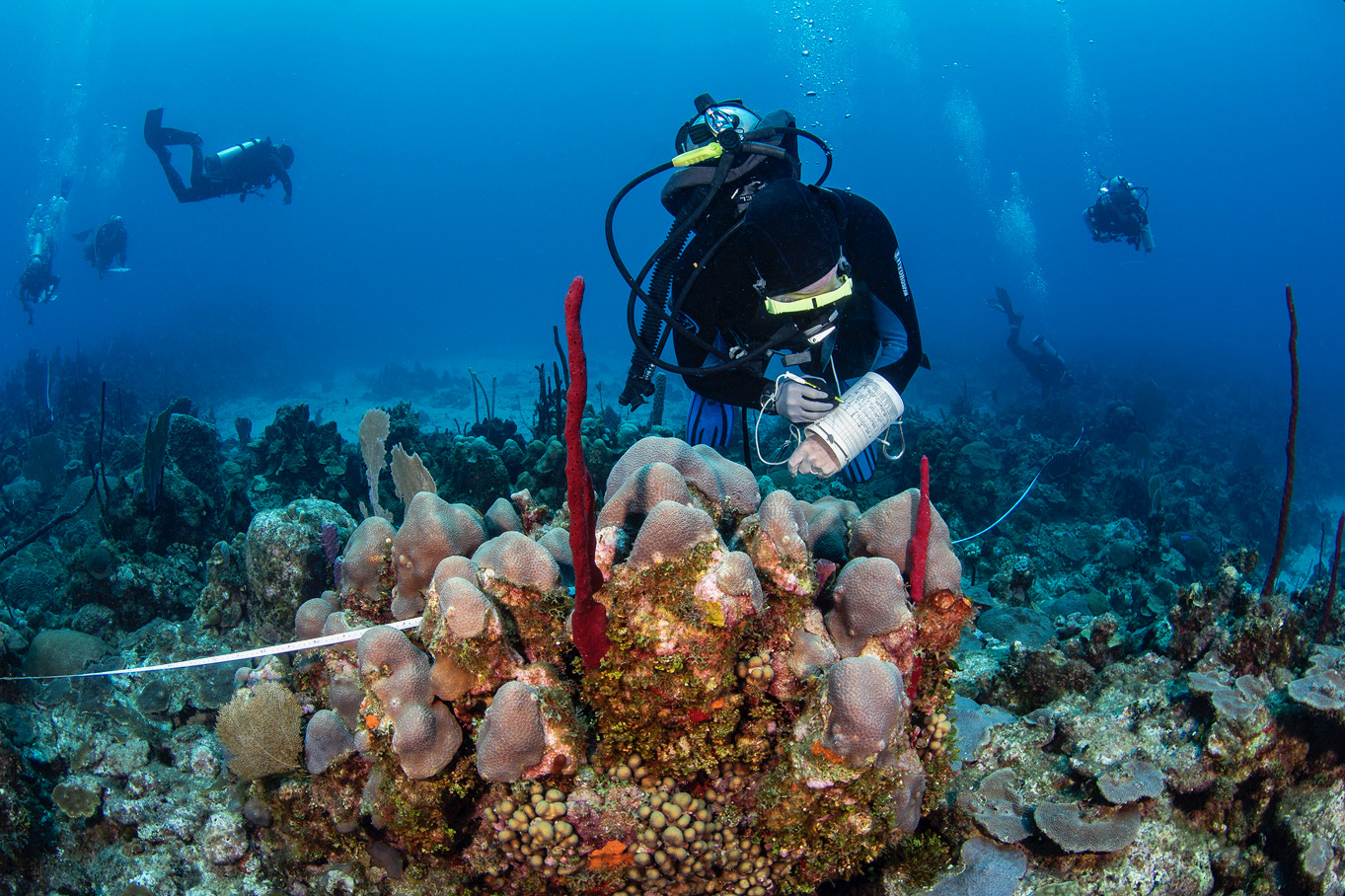
Steneck: Fishing puts coral reef ecosystem at risk in Dominican Republic
Coral reefs are the world’s most diverse and endangered marine ecosystems, particularly in the Caribbean. For the past five years, ecologist Bob Steneck has studied and monitored coral reefs in the Dominican Republic. Steneck is a University of Maine faculty member in residence at the Darling Marine Center in Walpole.
This year, trends revealed that the reefs are stressed and susceptible to disease due to fishing pressure on herbivorous fish that keep harmful seaweed in check.
Steneck, a professor of marine biology and marine policy in the University of Maine’s School of Marine Sciences, studies coral reefs in the Caribbean and Indo-Pacific oceans and kelp forests in the North Atlantic and North Pacific oceans.
The Dominican Republic project, a collaboration between UMaine and the nongovernmental organization Reef Check República Dominicana, monitors the most important characteristics of the health of the reefs.
Steneck and Ruben Torres, Reef Check República Dominicana director and marine biologist, coordinate the project. Their goal is to detect trends in coral populations.
Coral reefs are essential for the services they provide, both to the ecosystem and human communities that rely on them. They act as protective barriers for the coastline and provide habitat for diverse species.
Since 2015, Steneck and Torres have studied relationships between herbivorous fish, harmful macroalgae, and adult and juvenile coral to evaluate reef health and resiliency.
Students from UMaine and the Dominican Republic (DR) also take part. Every two years, Steneck travels to the DR with students enrolled in his course SMS 351: Coral Reefs. Students collectively learn how to monitor coral reefs and broaden cultural and scientific viewpoints.
“It is hard to teach students how the linkages between science and management work,” Steneck explains. “With these monitoring programs they can see it in action.”
UMaine senior marine science student Grace McDermott, resident of Groton, Massachusetts, did see it in action.
“I think that the DR research broadened my perspective in a way that I never would have gotten in the classroom,” she says. “I was able to talk to and associate with researchers and even locals and see what they thought about environmental conservation and research.”
In September, Steneck and fellow researchers published their most recent report, “Status and Trends of Coral Reefs in the Dominican Republic 2015-2019.”
The report revealed trends of declining reef health, but the team is using their findings to influence local reef management.
“UMaine students working with scientists and students from the Dominican Republic apply marine science to help policymakers manage their reefs,” says Steneck. “There is no better classroom or laboratory to study complex environmental issues such as these.”
In May, Steneck and his students traveled to the DR as part of the ongoing research. He had last visited with his team in 2015 and 2017.
During the expedition, Steneck’s team examined parrotfish. They’re important to reef health because they graze on harmful seaweed that slow the recovery of damaged reefs.
Steneck was invited to present the report in San Domingo, DR to the country’s environmental regulators, in hopes they would extend the ban on harvesting parrotfish. Whether the ban will stay in place is to be decided.
Steneck’s work was funded by Propagas, a Dominican Republic nongovernmental organization committed to environmental conservation. He and his students will return in 2021 to continue this research.
Founded in 1965, the Darling Marine Center’s mission is to connect people to the ocean. The center’s researchers, staff and students work alongside fishermen, aquaculture entrepreneurs, marine industry professionals and other members of the community in Maine and around the world. More information is available at dmc.umaine.edu
